Decolonising the Stage: Chryss Carr on Elevating First Nations Voices at BIGSOUND

With a career spanning three decades and a focus on amplifying First Nations voices for the past 20 years, Chryss Carr is one of Australia’s most distinctive artist managers.
Through her company, AUM MGMT + PR, she has not only built the largest management roster of First Nations artists in the country but has helped establish the careers of groundbreaking hip hop talents like Baker Boy, Dallas Woods, and now, J-MILLA and Yung Milla.
This year’s BIGSOUND will feature the free pre-event, Incubated Stage, showcasing a lineup curated by Carr that includes artists from both within and beyond AUM’s roster.
As part of the Goolwal Goolwal program, Incubated is set to take over the JBL Live at BIGSOUND stage on Wednesday, Sept. 4 from 4.45-6PM.
Yung Milla will make his debut performance outside of the Northern Territory, sharing the stage with rising stars Sachém, Kootsie Don, DJ Eyeaam and dance troupe THE AUX for a showcase that brings the advocacy spirit of AUM to life.
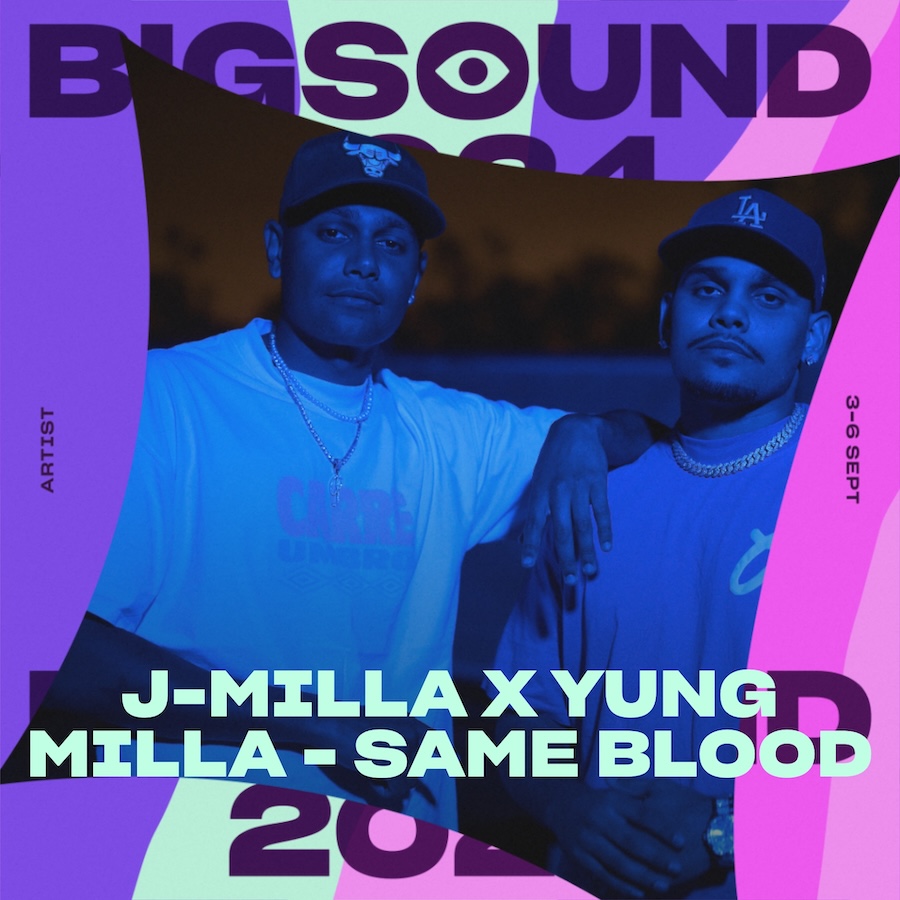
Incubated was born out of a BIGSOUND showcase pitch meeting between Carr and Sue Ray, QMusic’s First Nations Music Officer, who said she was inspired by AUM’s decolonisation approach to music.
“When I originally spoke to Chryss Carr about AUM I was immediately impressed with her passion and enthusiasm to support, celebrate and elevate First Nations artists,” said Ray. “I was also inspired by AUM’s decolonised approach to the way that they operate, which is so refreshing and ahead of their time, as AUM have been operating with this model since 2007.
“Also, when I saw the register of artists AUM represents, I was so pleased to say that they have a large and impressive register of First Nations artists, one of the largest I’ve seen on one management roster,” Ray added. “I am excited and honoured to have AUM programming an event as part of our First Nations Goolwal Goolwal program at BIGSOUND 2024.”
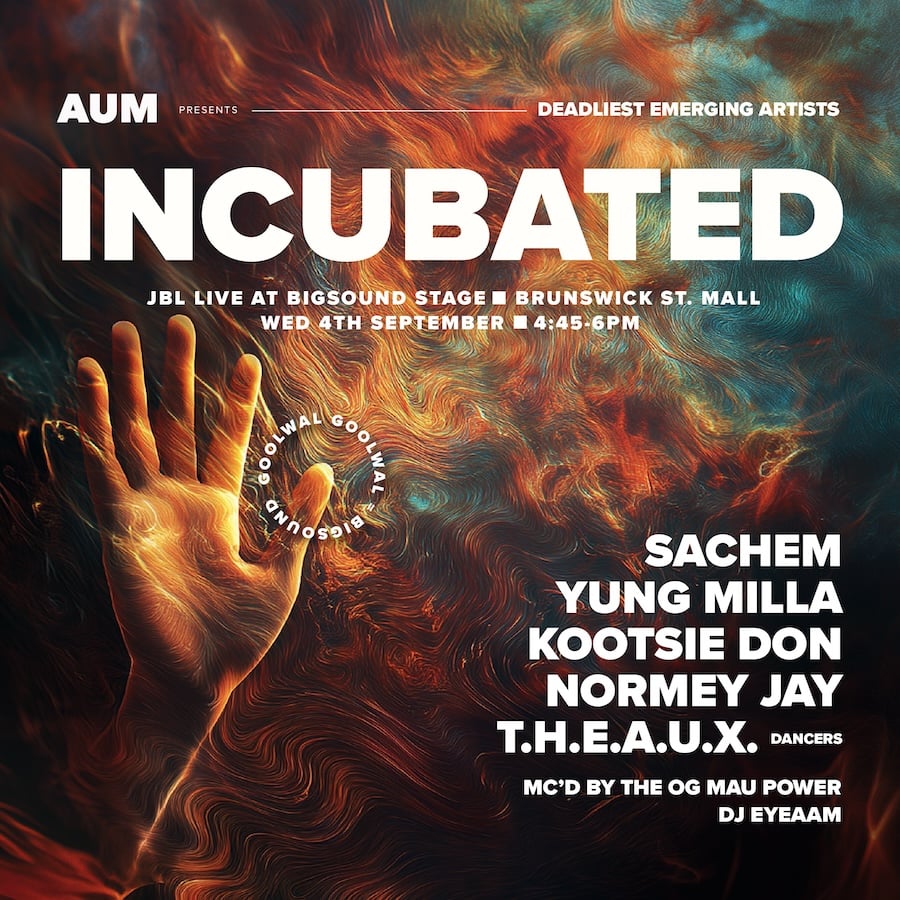
Speaking to TMN, Carr details how her stint as Gurrumul’s publicist changed the course of her life, how AUM ensures First Nations peoples and protocols are front and centre with her artist roster, just how she aims to decolonise the Incubated Stage at BIGSOUND, and much more.
TMN: You mentioned the goal of the Incubated Stage is to decolonise it as much as possible. How are you going about that?
Chyrss Carr: Several First Nations colleagues I work with refer to the music industry as ‘the colony’, which is funny, but true in a sense. In this context a ‘decolonised’ space is careful to give the artists agency, and try to mediate and control what’s going on as little as possible.
I always wince when I hear people in management say, “my artist”, “your artist” or “our Indigenous people”. That sense of ownership is a part of how the industry power structure works and don’t get me wrong, I find I’m often correcting myself too. But I think we need to be extra careful with language and attitude in this space.
So for instance, rather than AUM getting up and ‘curating’ the stage, we’ve asked the OG Mau Power from the Torres Strait to MC and we’re drop-dead happy he’s said yes. Mau is such a legend. Probably the first ever First Nations rapper, highly respected by mob and one of the best human beings I’ve met in the industry. He’s also going to perform a special rendition of “Freedom,” the song he and Uncle Archie Roach recorded ten years ago.
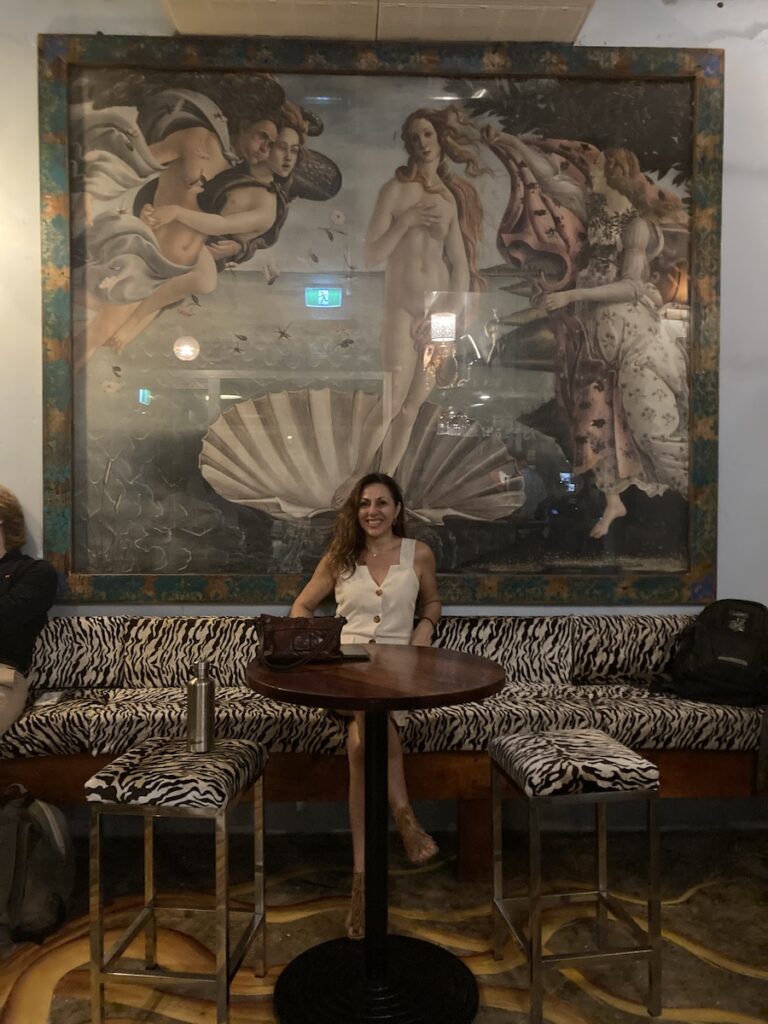
Chryss Carr, owner of AUM PR and Creative
You have a lot of experience in the First Nations Music management space, yet you are the first to say that your lived experience is entirely different because you are not First Nations yourself. How did you find yourself in that space?
It was working as Gurrumul’s PR that changed the course of my life. We were with him and his family for six years and over that time I learned how important it is to build trust, and I realised what a rare privilege it is to experience that. It was really that trust, I think, that made word spread on the bush telegraph, especially up in Arnhem Land where we continue to work.
After Gurrumul came Dan Sultan, and we implemented the PR campaign that won him his first ARIA. Then Benny Walker, East Journey, Baker Boy and Dallas Woods joined the management roster and they just kept coming.
I get a deep sense of meaning and fulfilment working with these artists and I’m sure they recognise that. I never actively go looking for clients, they always come to us and I’ve made the decision that as long as artists keep coming, we’ll keep going.
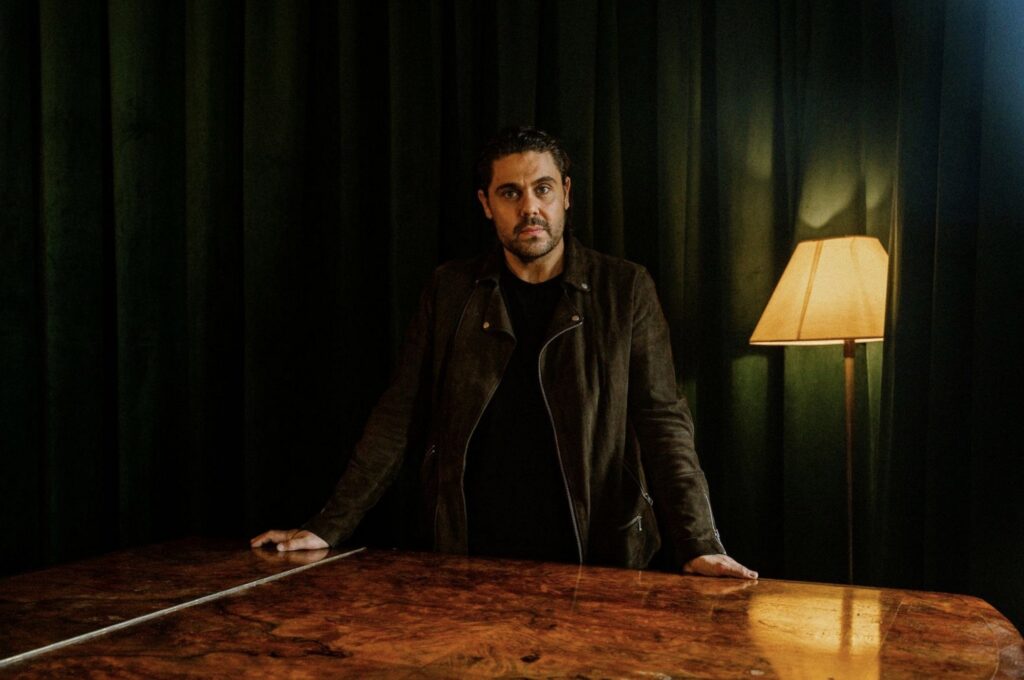
Dan Sultan. Photograph by Michelle Grace Hunder
Australia has First Nations peoples to thank for our culture. How do you grapple with navigating the music industry whilst ensuring First Nations peoples and protocols are front and centre?
It’s not easy, and there’s no shortcut to gaining the kind of cultural intelligence you need to work effectively in this space. I’m always very conscious that I’m still learning. I’m just lucky to have had the experiences I’ve had, to slowly learn a smidgen of the incredible breadth and depth of knowledge and wisdom that I’ve been shown.
In terms of then relating to the industry at large, if you ask anyone that knows me they’ll tell you I’m a very direct communicator. I’ve been working in music business since I was 19 and at this stage of my career I just call it as it is and I have no qualms about calling people out. So if artists need protection or guidance I’ll tell ‘em straight up what I am seeing or feeling.
With non-Indigenous people I try to be patient when sharing my experience. It’s important to do what you can and be ready to make mistakes and cop the flak. That’s better than being ignorant and maintaining an antiquated status quo. The artists we work with appreciate the fact we’re prepared to look ’shame job’ for a minute so we can continue learning and get on with the job.
Right now my best suggestion for any non-Indigenous people wanting to gain a true perspective from an incredible Aboriginal man, the late great Rev. Dr Gondarra, is in a film called Luku Ngarra: The Law Of The Land. I think it sums up the baseline of what everyone needs to understand about the history of Aboriginal people in this place we call Australia.
You’ve managed Baker Boy in the past. What did you learn from that experience that has helped you manage your artists like J-MILLA now?
It was incredibly rewarding to break and established Baker Boy’s career. After pouring so much energy and resources into that journey it wasn’t easy letting go, but there’s nothing like that kind of success to build confidence going forward. I still get a thrill of watching him grow.
I think the important thing I learned was again to do with trust: making sure that’s built from the ground up and that it’s reciprocated by everyone in the artist’s orbit. So with J-MILLA I met his family first up, got to know them and the other people around him that he respects and trusts. Those people are so important because when the fame and success start to kick in, it’s so easy to get distracted and that’s when the sharks start swarming.
Pretty much every single artist on the AUM roster, either PR or management, comes to us at the very early part of their career. This stage requires the biggest amount of breakthrough work but it’s also the most exciting stage too, when the artist starts to build heat and all that comes with it, and our experience with Baker Boy was invaluable in preparing me for that, and helping me prepare the artists we’re working with now.
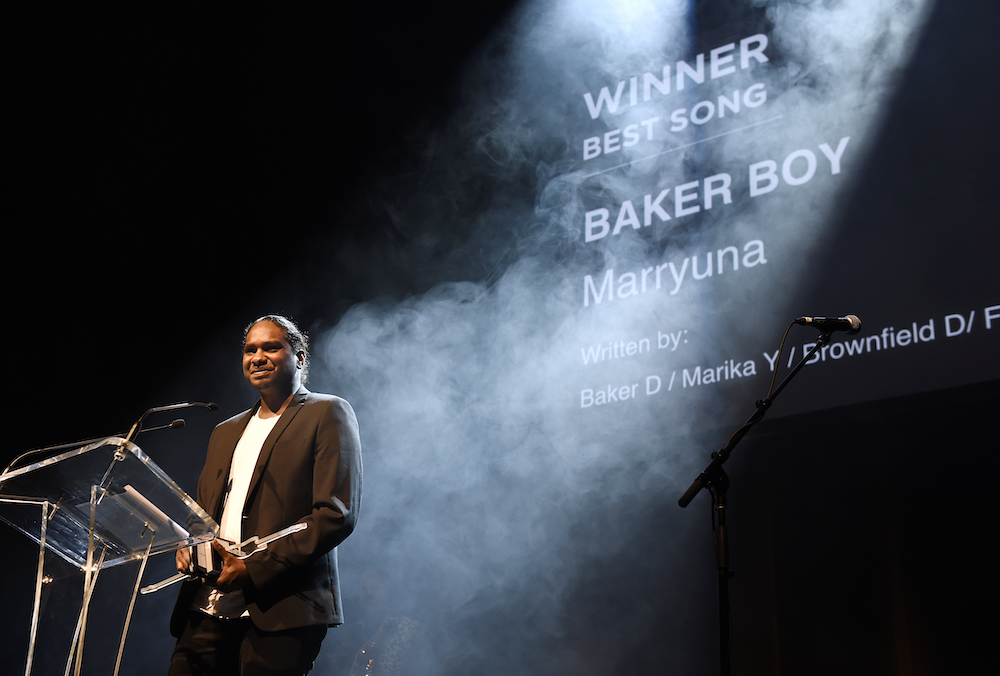
Baker Boy at the 2022 Music Victoria Awards
Are the corporate spaces of our music industry currently a respectful space for First Nations artists?
Mostly not I’m afraid. There’s a lot of talk but not a lot of walk. These things take time and I can see that the authentic intent is there in some places, so we focus on collaborating with those people and entities.
Personally I believe the whole moral compass of the industry needs to be upgraded in relation to Blak people, queer people and female people. It’s systemic and change will be slow, but one of the great things about the music industry is its power to shape society and culture. When we get to a certain tipping point where women and First Nations people are in strong positions in this business, the music industry could lead the world.
I was at a Blak Talk a few years ago in Darwin and this incredible woman, a Kimberley Nyikina Warrwa woman called Anne Poelina was speaking. I’m paraphrasing, but she said something along the lines of, ‘It’s not just us blackfellas that are subjugated by colonisation, it’s whitefellas too, and women and everyone with no power’. I think music is in a unique position to give some of that power back.
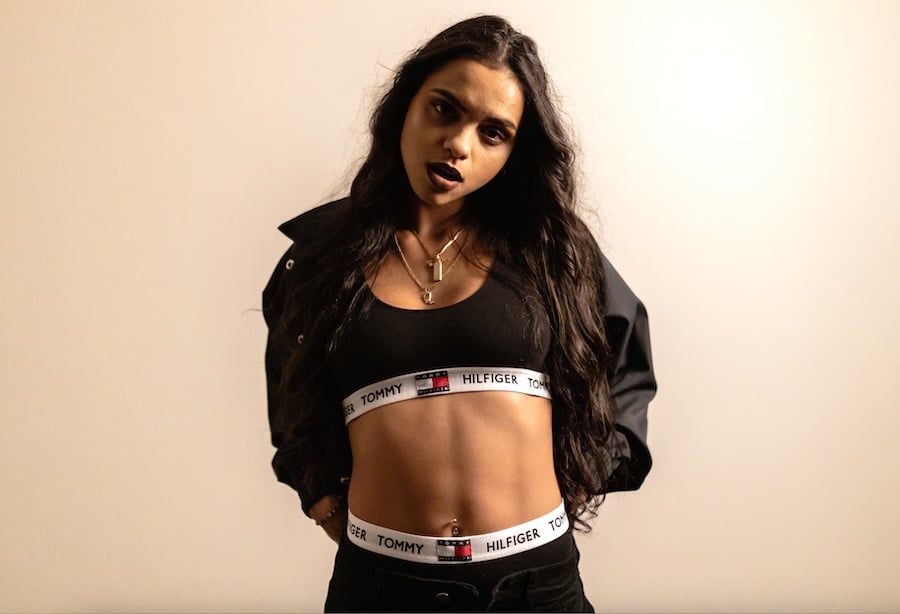
Kootsie Don
So what exactly can we expect to see on the Incubated stage this year?
Apart from our MC Mau Power, from AUM you’ll get to witness two very young NT rappers we’ve been working with, Yung Milla and Kootsie Don, who are more than ready to show their stuff. And outside of the AUM roster there’s this extremely talented rapper /spoken word poet, Sachem, who’s rising fast right now and a brand new talent called Normey Jay from up north. We’re currently talking to a hot new female DJ too, but I can’t say too much about that yet!






























